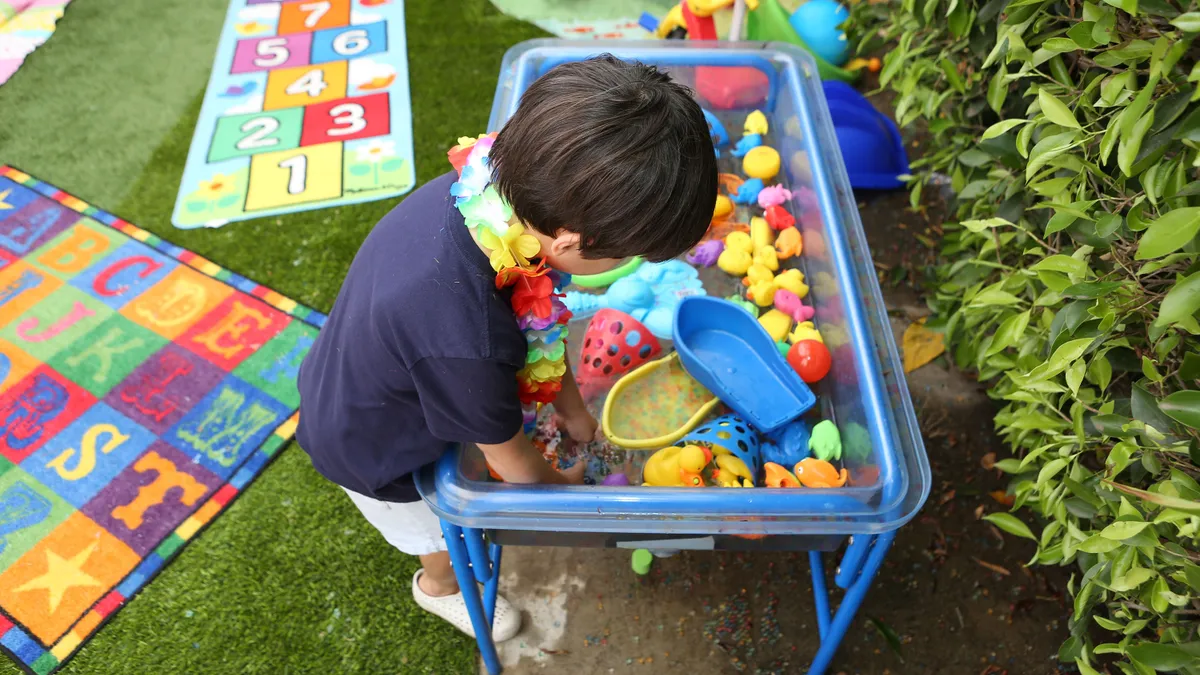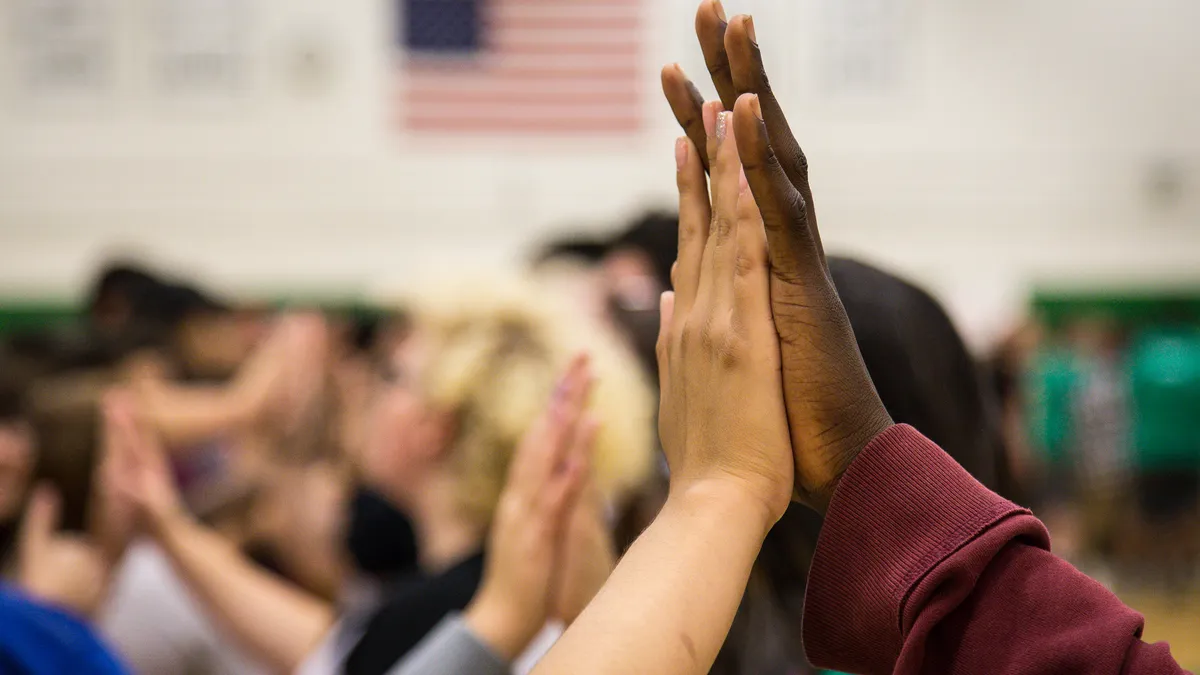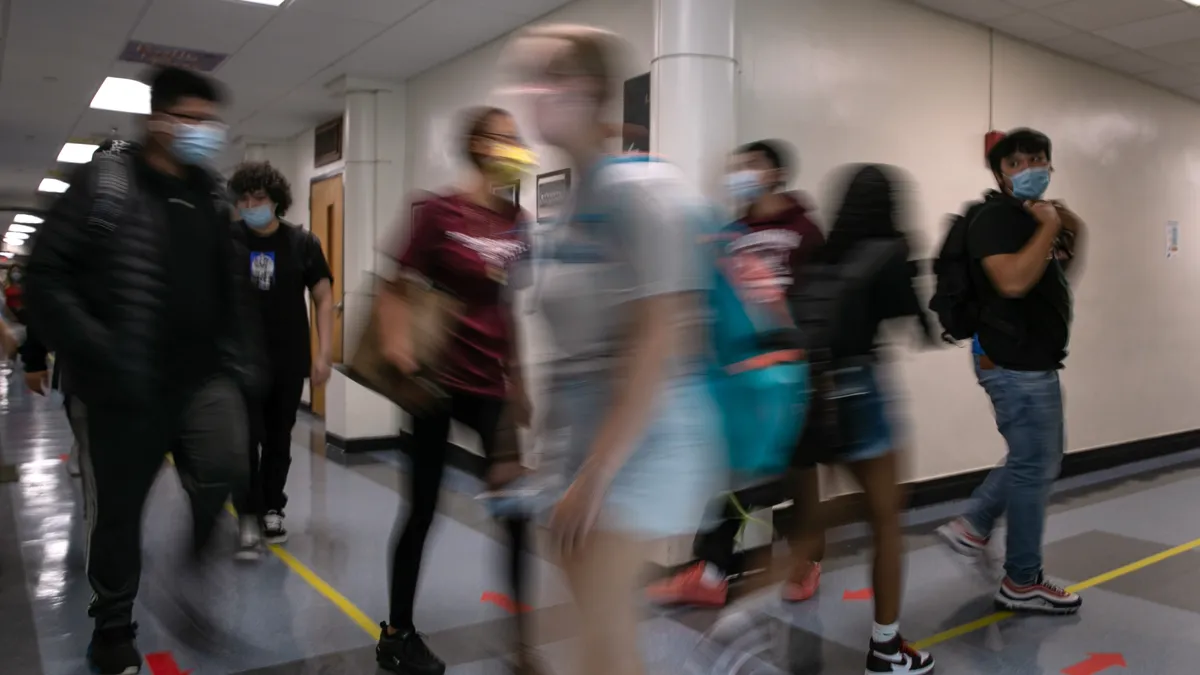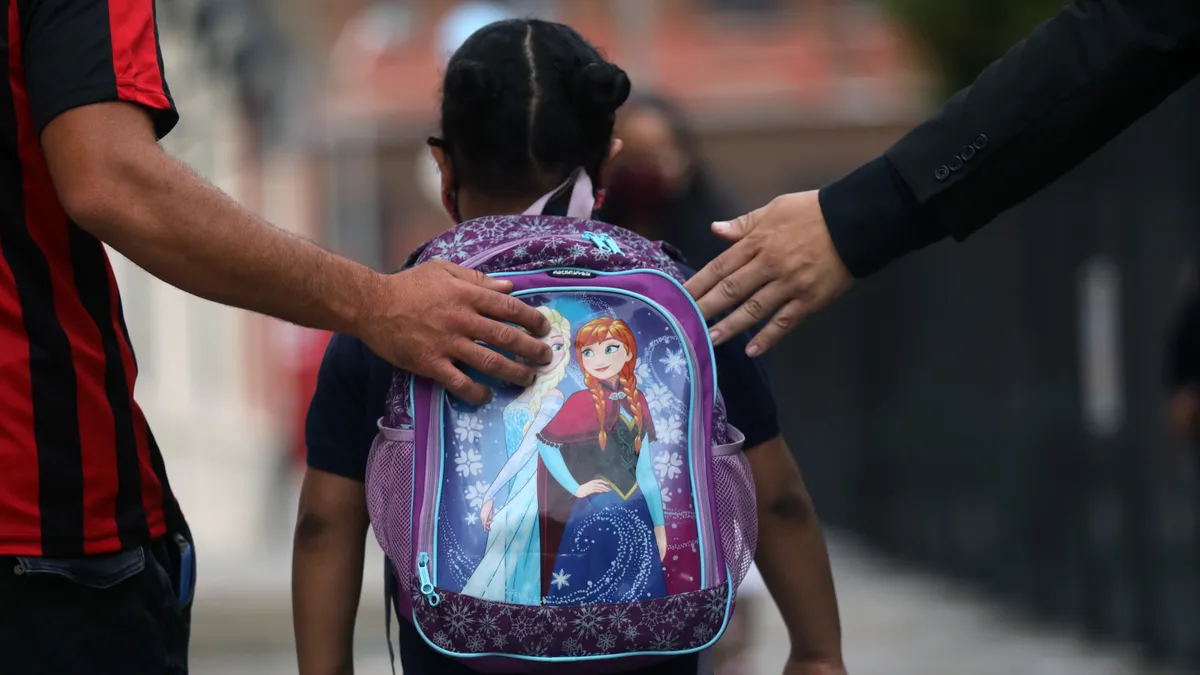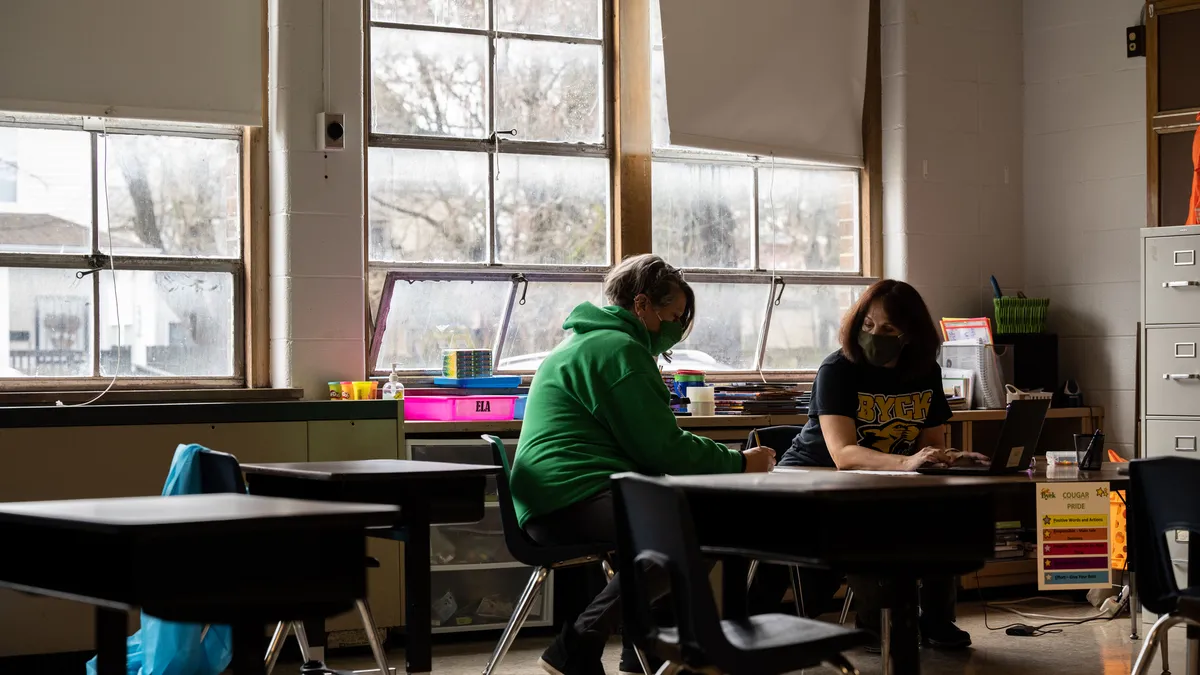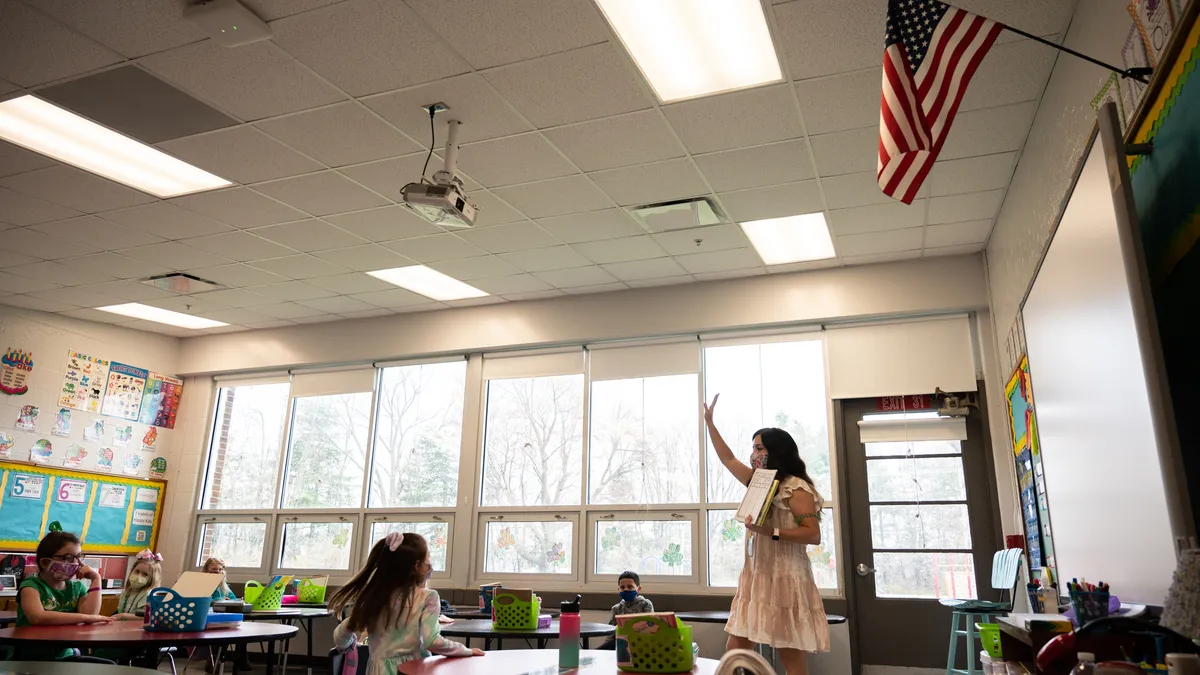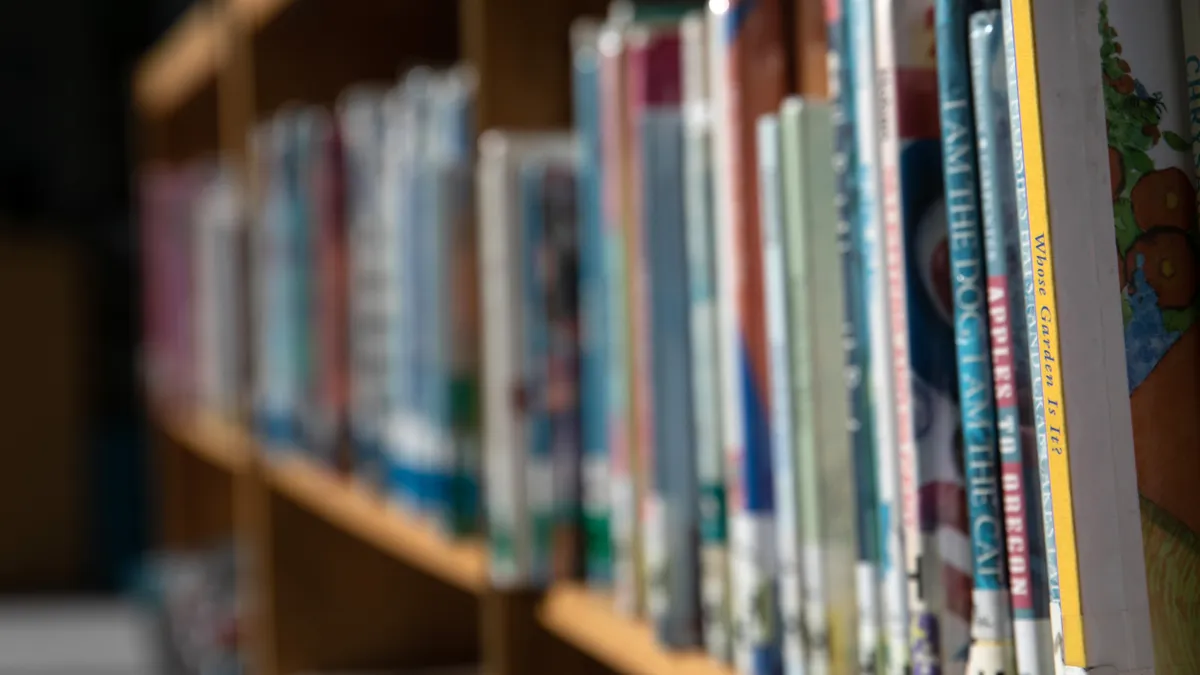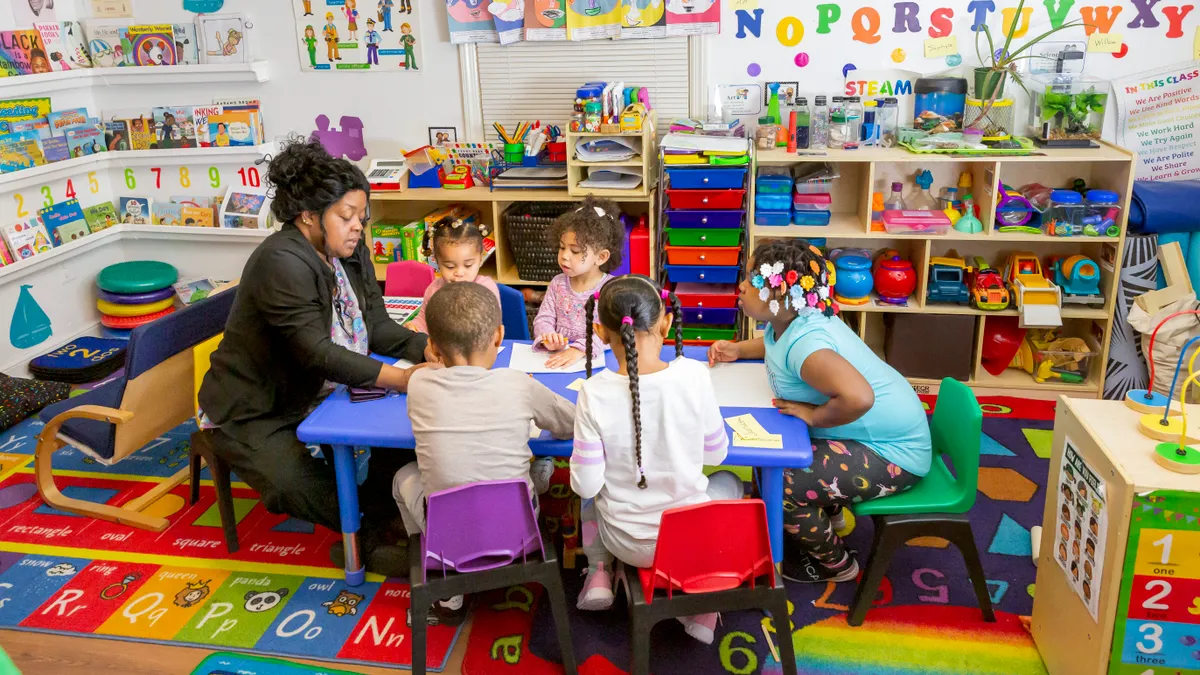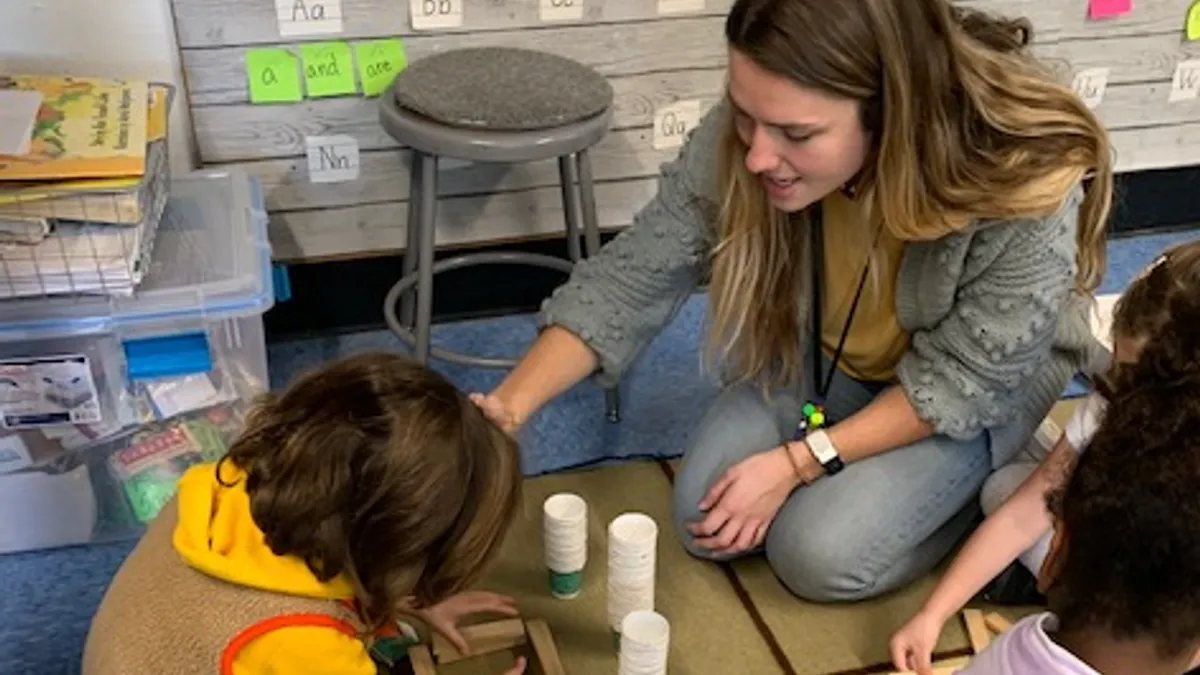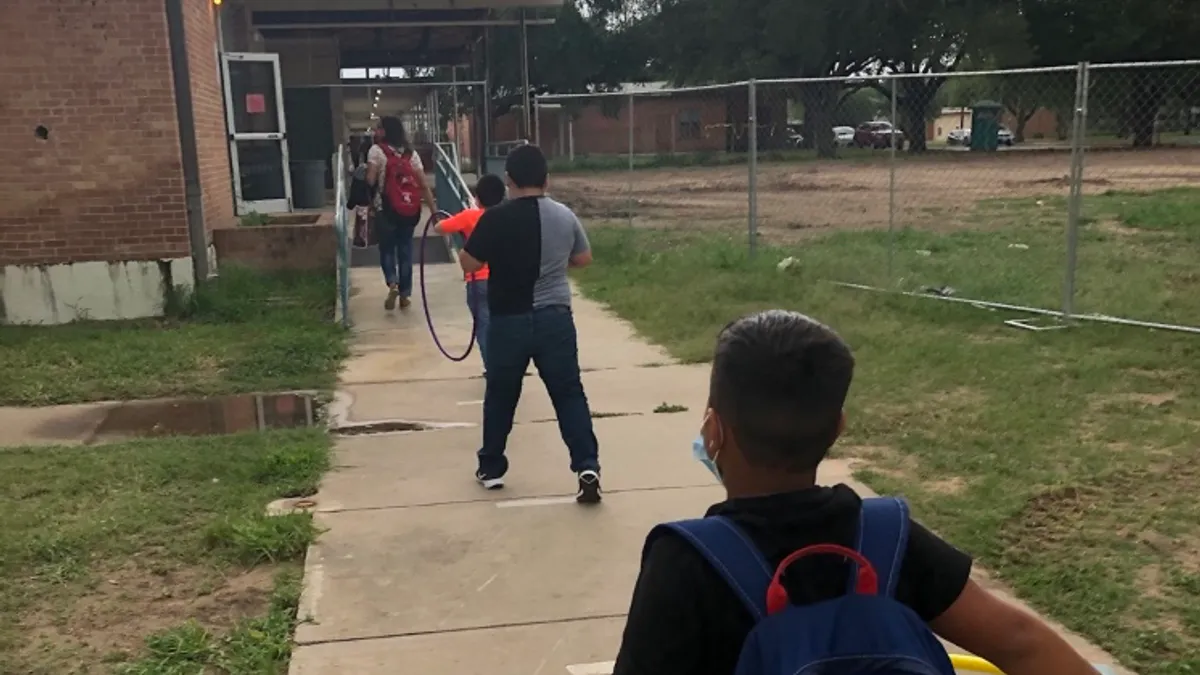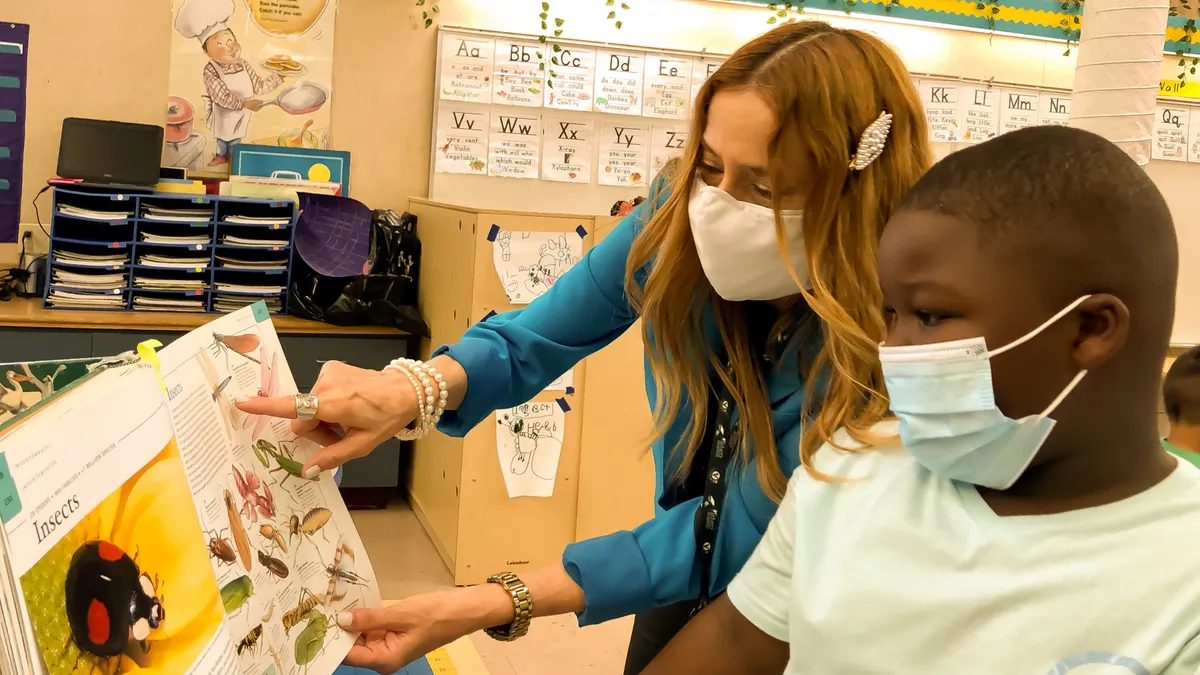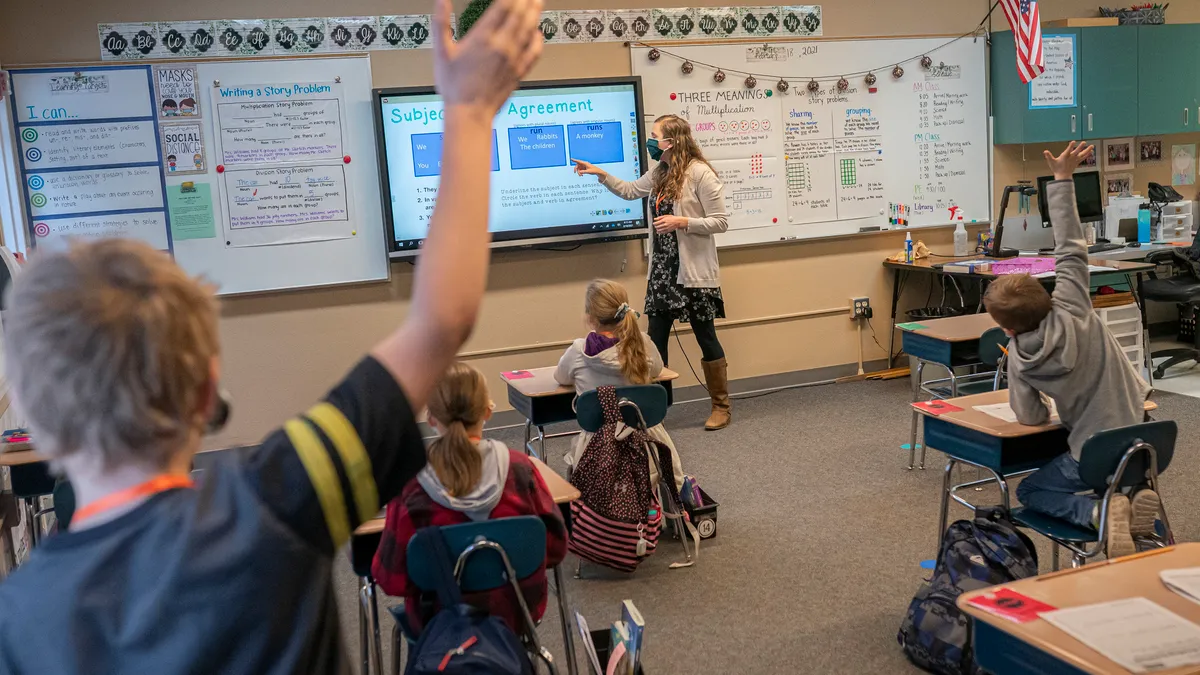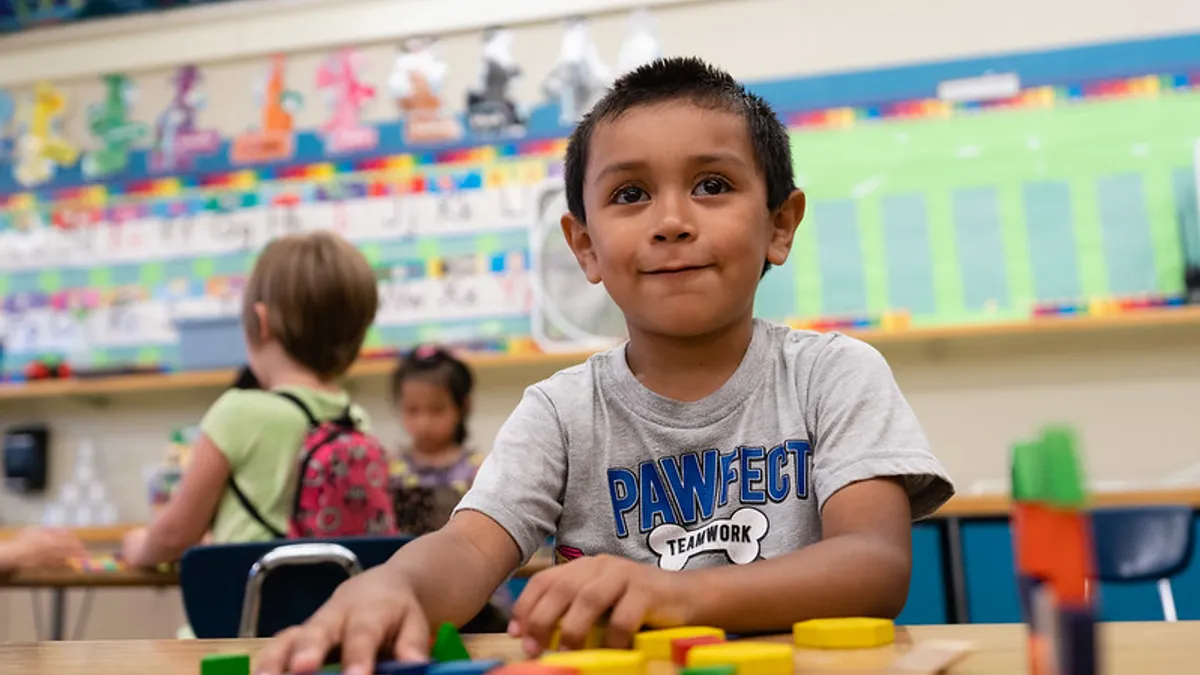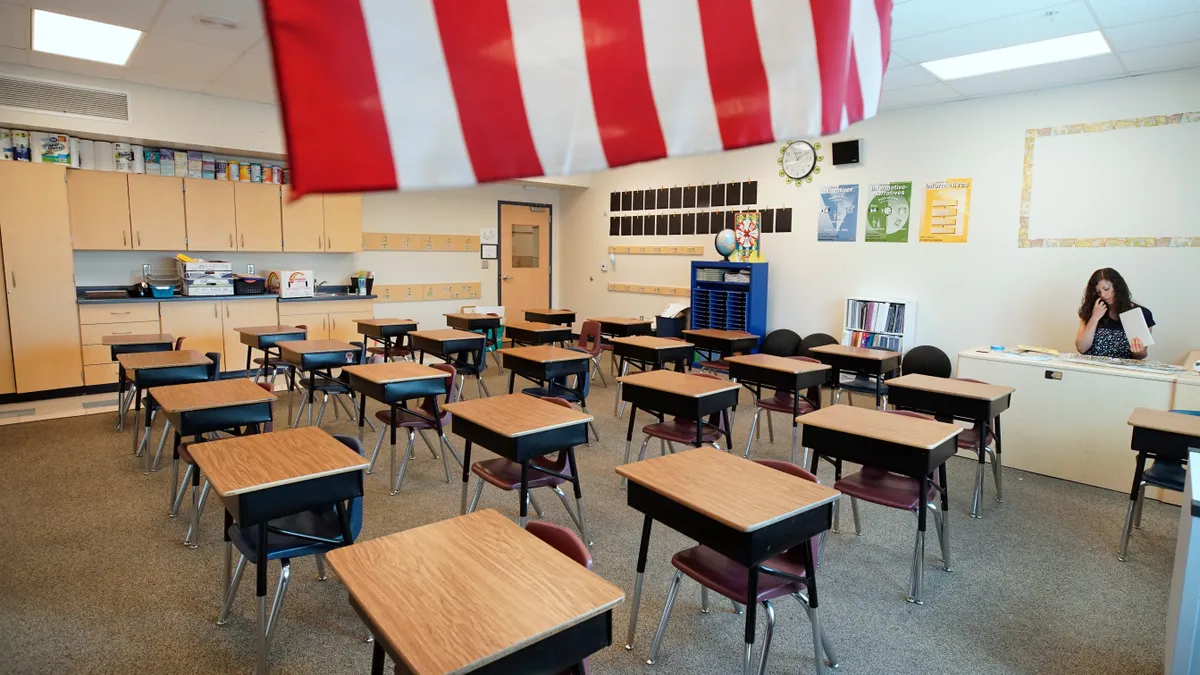Curriculum: Page 43
-
ISTE 2021: Teachers share pandemic 'aha' moments and how they'll apply them
Educators in a Tuesday webinar discussed helping learners develop autonomy, deepening student relationships, and enhancing collaboration.
By Roger Riddell • June 30, 2021 -
Quality PD, curriculum frameworks critical for robust early childhood ed
Early learning experts in a virtual discussion expressed optimism that federal relief can help advance young children’s academic and social development.
By Kara Arundel • June 29, 2021 -
Trendline
Social-Emotional Learning
Our latest K-12 Dive Trendline takes a closer look at how educators are addressing social-emotional learning amid pushback from policymakers and ongoing demand from employers.
By K-12 Dive staff -
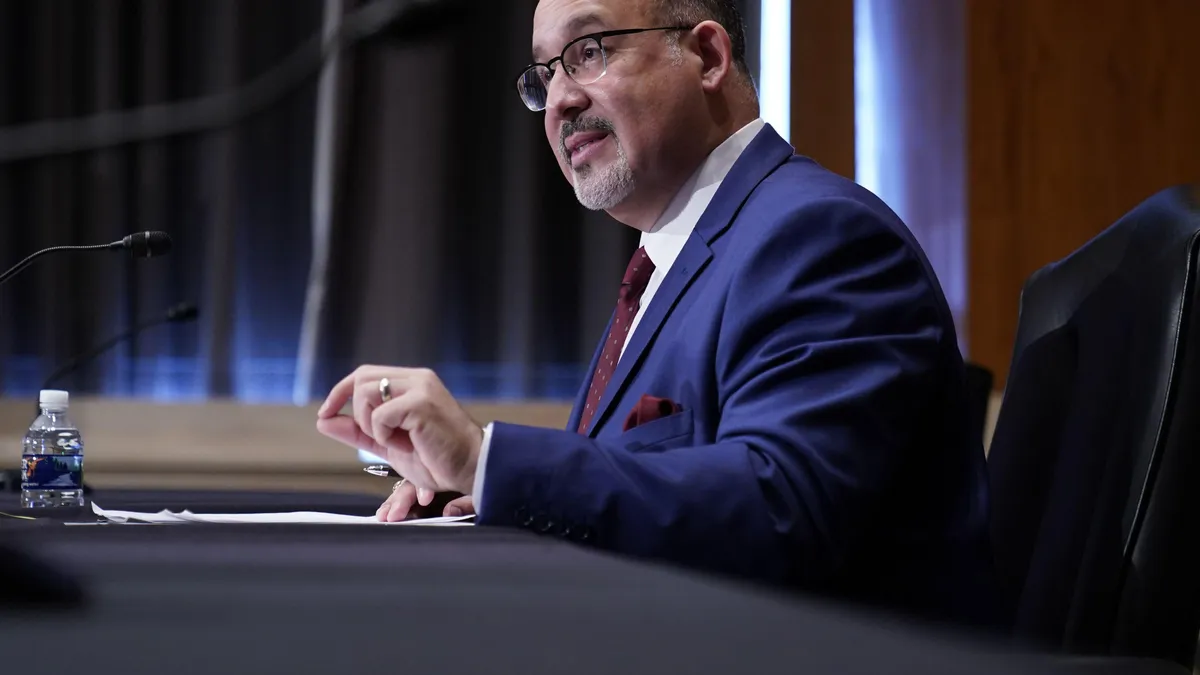
 Retrieved from UPI / Alamy Stock Photo on March 01, 2021
Retrieved from UPI / Alamy Stock Photo on March 01, 2021
Lawmakers show division on instruction around racism in America
U.S. Secretary of Education Miguel Cardona repeatedly said during a hearing Thursday that the federal government doesn't dictate curriculum.
By Kara Arundel • June 25, 2021 -
Curricula can incorporate consent beyond health class
Recognizing personal boundaries and understanding trauma go hand-in-hand with SEL skills like empathy, communication and compassion.
By Lauren Barack • June 23, 2021 -
Study: George Floyd's murder sparked teacher demand for anti-racist resources
Research finds more requests for books by or about African Americans than after any other race-related event over the past 10 years.
By Kara Arundel • June 23, 2021 -
After a year of distance learning, where are classroom design trends headed?
Pandemic-era partitions and barriers will eventually come down, but the push toward more flexible, modern classrooms continues.
By Shawna De La Rosa • June 23, 2021 -
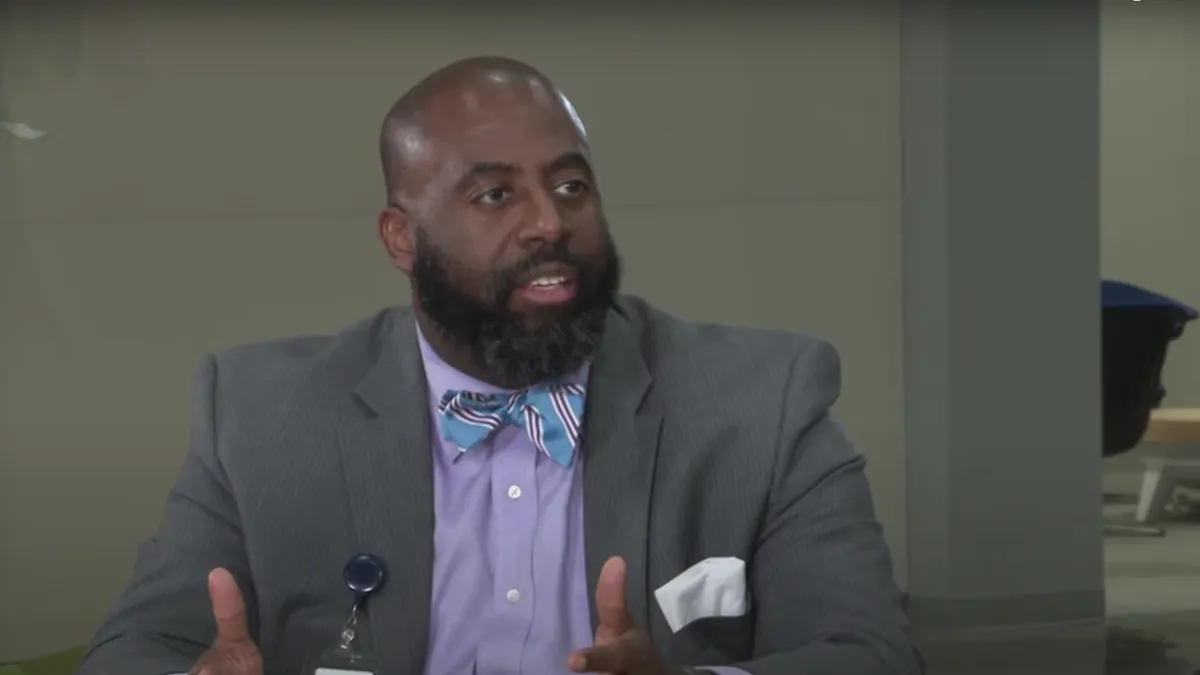
 Retrieved from Richland School District Two YouTube on June 22, 2021
Retrieved from Richland School District Two YouTube on June 22, 2021 Q&A // LESSONS IN LEADERSHIP
Q&A // LESSONS IN LEADERSHIPLessons In Leadership: How can districts improve recruitment, retention for male teachers of color?
In South Carolina's Richland School District Two, Superintendent Baron Davis has also prioritized strong magnet programming and facilities improvements.
By Roger Riddell • June 22, 2021 -
Administrators put focus on high-impact teacher PD
Summer and early fall professional development will target areas most in need after a year of instructional turmoil.
By Kara Arundel • June 22, 2021 -
5 ways school librarians can support teachers and students amid reopenings
School librarians are in a unique position to help address social-emotional, curricular and other needs amid the return to in-person learning.
By Dayna Straehley • June 18, 2021 -
Arts provide a natural curricular vehicle for SEL
Visual and performing arts programs can help students learn to explore feelings while also embracing impulse control and delayed gratification.
By Lauren Barack • June 16, 2021 -
Strategies to accelerate computer science implementation
Building out a computer science teacher pipeline is a strong first step, as shortages are among the top factors hindering schools.
By Shawna De La Rosa • June 16, 2021 -
With burnout on the rise, districts turn to staff SEL and bringing joy to learning
District leaders and education experts say school staff well-being is important for student achievement and for preventing staff shortages.
By Kara Arundel • June 16, 2021 -
Career pathways expand opportunities for all high-schoolers
CTE has regained traction in recent years as policymakers and ed leaders have recognized every student's goal shouldn't necessarily be college.
By Shawna De La Rosa • June 11, 2021 -
SEL provides inroads to inclusiveness for students with disabilities
Ensuring social-emotional curriculum examines experiences of the disabled community is critical to deepen students' understanding of peers.
By Lauren Barack • June 9, 2021 -
NYC initiative aims to expand LGBTQ representation in history lessons
A curriculum supplement adds LGBTQ context for significant eras in U.S. history and provides the stories of 20 key individuals.
By Roger Riddell • June 9, 2021 -
Opinion
Schools must provide assessments to see where students stand after pandemic
The superintendent of San Antonio ISD writes that exams are more crucial than ever to target supports and help students gain lost ground.
By Pedro Martinez • June 8, 2021 -
3 CTE directors share tips for strong school-business partnerships
Collaborations require time, creativity and flexibility but can yield many benefits for students and companies.
By Kara Arundel • June 8, 2021 -
Supporting students' emotional needs in the return to school
A middle school educator advocates for making space for icebreaker activities as students return to full-time, in-person learning.
By Lauren Barack • June 2, 2021 -
Reading tutors help prepare early learners for kindergarten
Shevrin Jones, executive director of Florida's Reading Corps, says reading is the one foundation for children that can't be overlooked.
By Kara Arundel • June 2, 2021 -
Can roadmap help chart a curricular course on social studies?
Growing political polarization has resulted in civics, history and similar subjects getting short shrift as wariness persists around teaching controversial topics.
By Shawna De La Rosa • June 2, 2021 -
Collaborative, inclusive classrooms begin with educators
Seeing educators model teamwork gives students a baseline to build from as they strengthen related soft skills in their own group work.
By Lauren Barack • May 26, 2021 -
Deep Dive
Weaving anti-bias and equity into curricula begins with self-reflection
Through professional development and other avenues, educators can root out their own biases to support culturally responsive approaches to learning.
By Lauren Barack • May 26, 2021 -
Opinion
Alternative assessment approaches can boost creativity, educators' insights into student learning
Van Andel Institute for Education Director Terra Tarango shares five alternative approaches educators can use to move beyond pencil-and-paper.
By Terra Tarango • May 26, 2021 -
NAEP: 4th grade science scores drop, 8th and 12th grade remain steady
Racial and gender performance gaps have narrowed since 2009, driven by improving scores from female and Black and Hispanic students.
By Kara Arundel • May 26, 2021 -
Decoding the Divide: The struggle to make 21st century learning equitable for all students
A year of unprecedented disruption prompted significant investment to expand digital equity, but gaps persist in a number of areas.
By Roger Riddell , Naaz Modan , Kara Arundel • May 25, 2021

